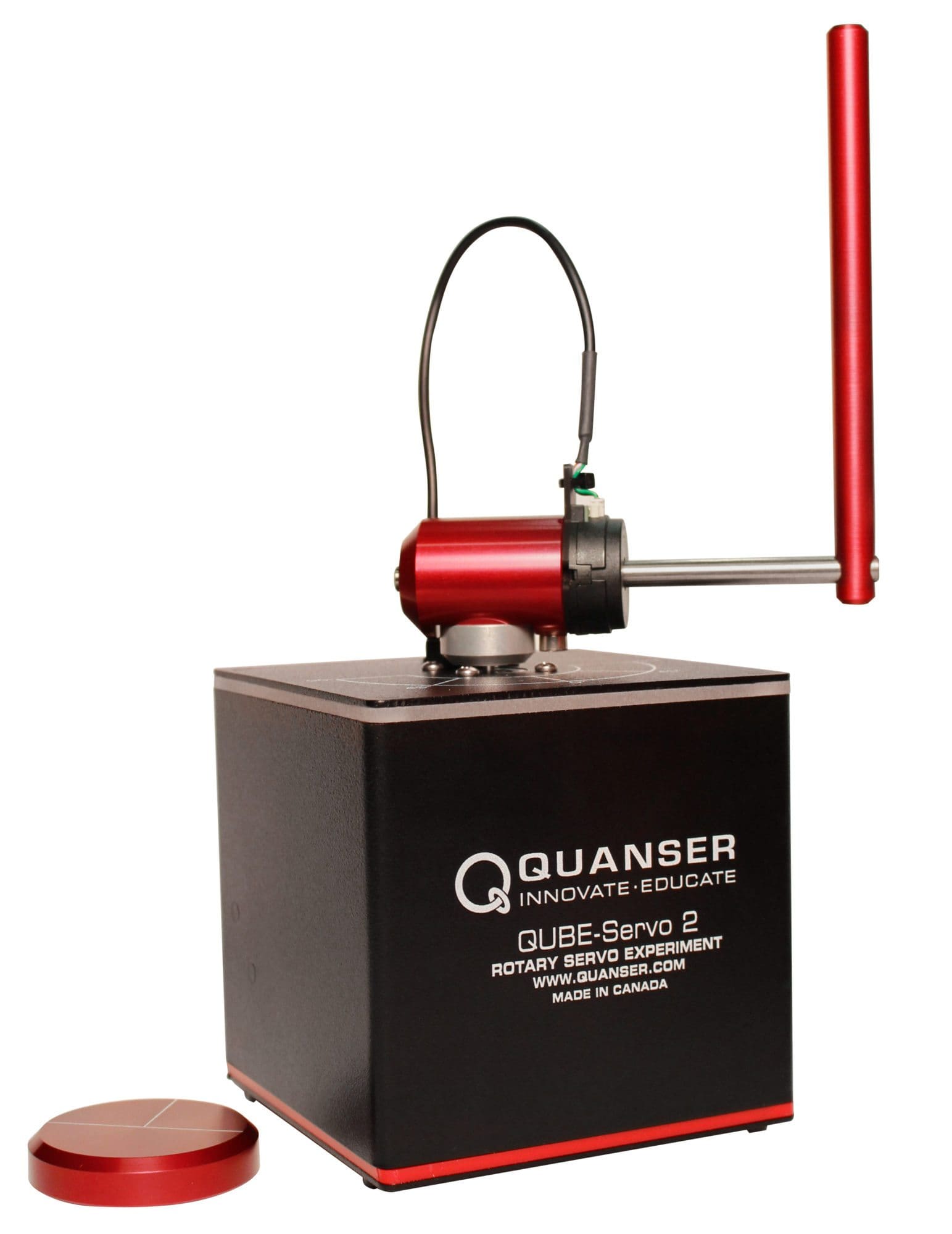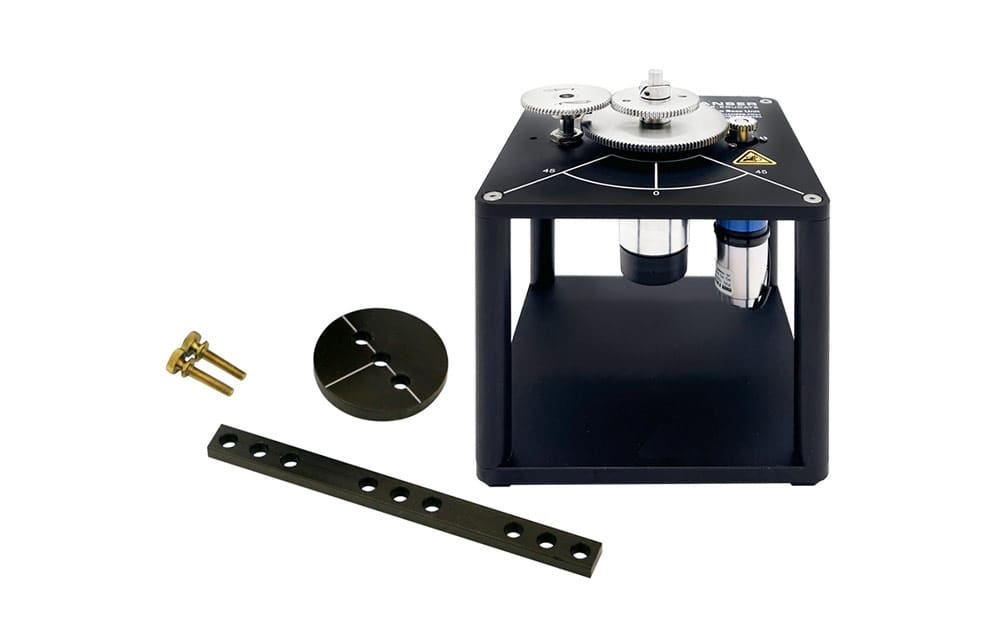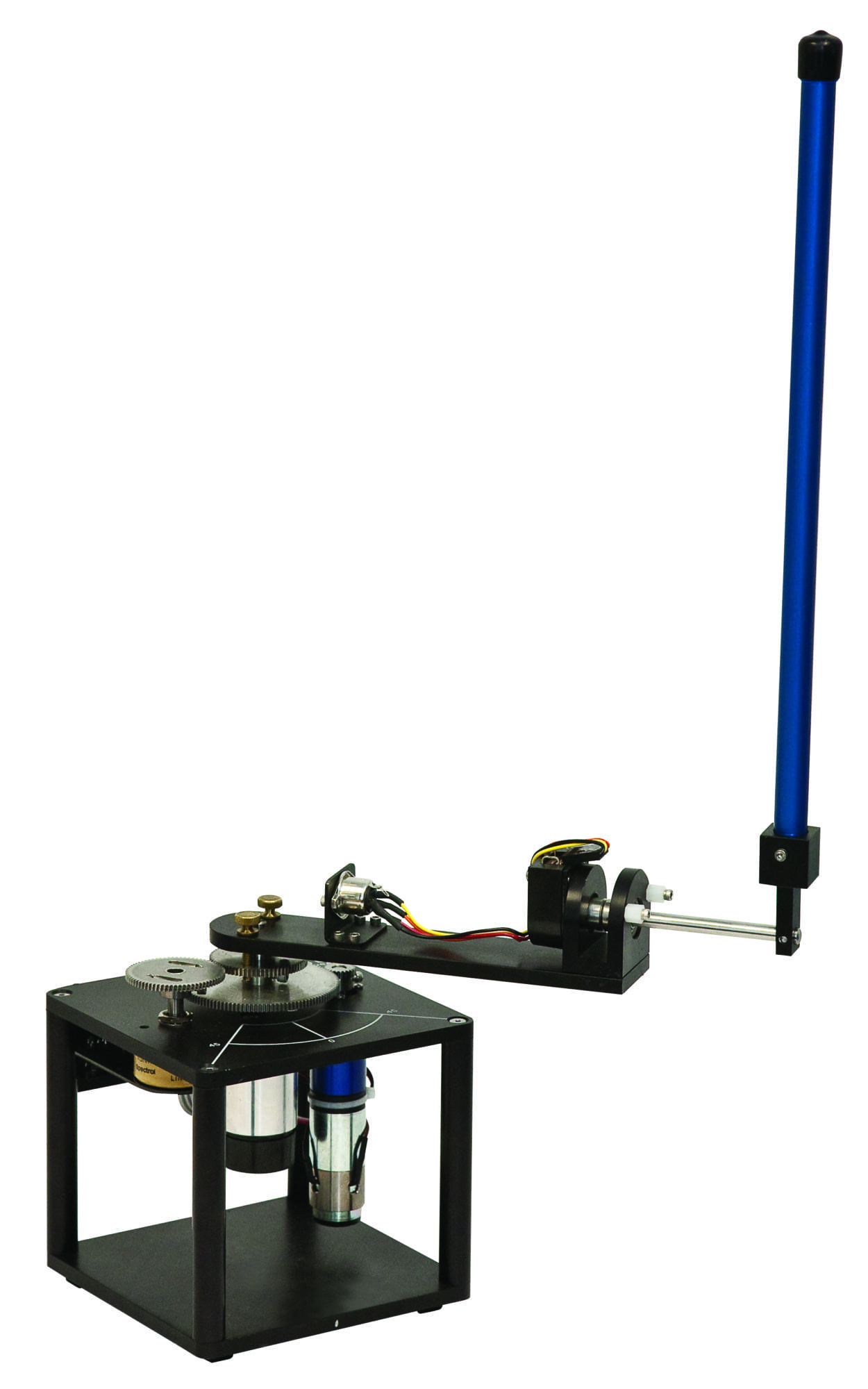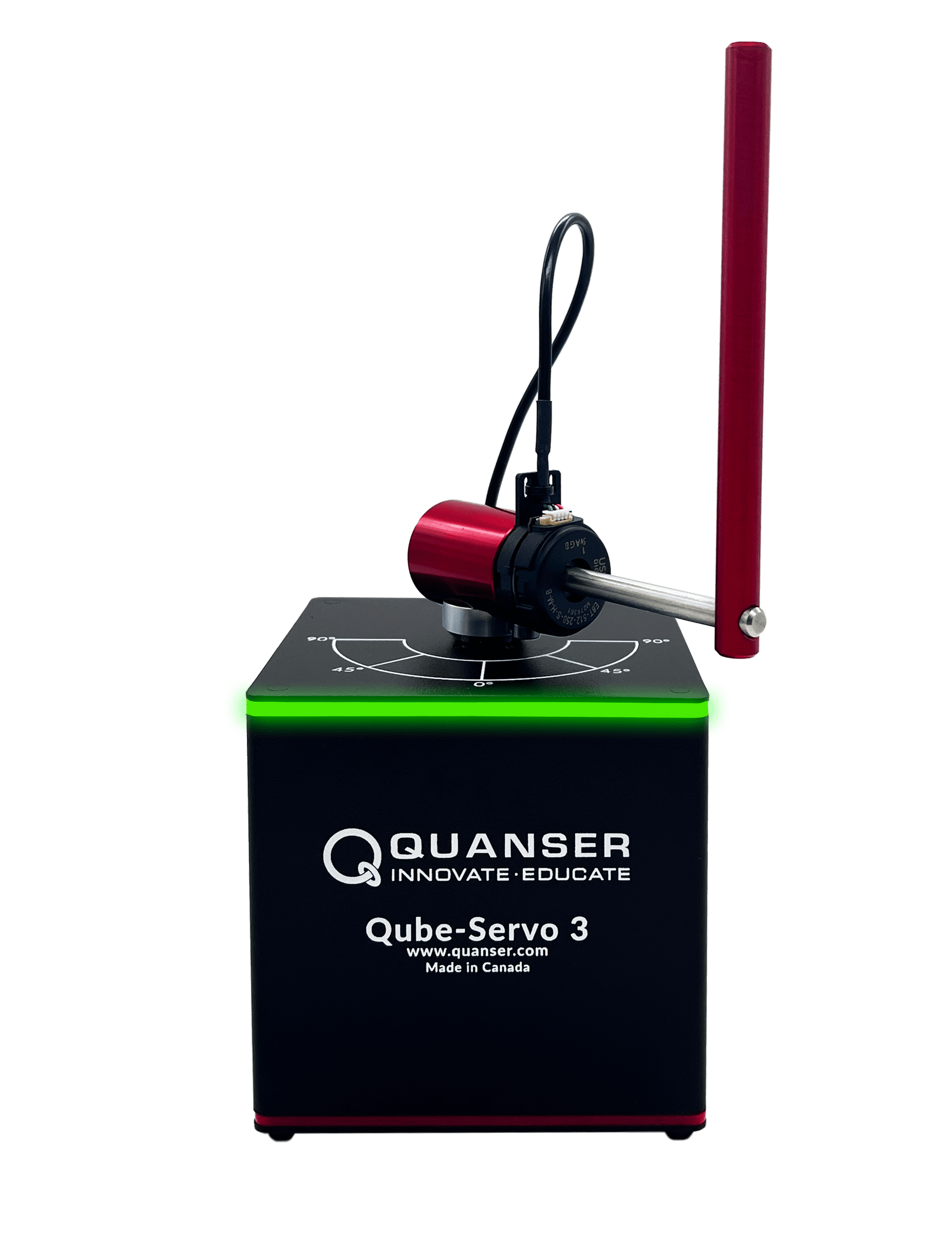QLabs Virtual QUBE-Servo 2
Virtual platform for distance and blended undergraduate control systems courses
QLabs Virtual QUBE-Servo 2 is a fully instrumented, dynamically accurate virtual twin of a classic QUBE-Servo 2 system. It behaves in the same way as the physical hardware and can be measured and controlled using MATLAB®/Simulink® and other development environments. QLabs Virtual QUBE-Servo 2 can enrich your lectures and activities in traditional labs, or bring credible, authentic model-based lab experiences into your distance and online control systems course.
QLabs Virtual QUBE-Servo 2 is available as a 12-month, multi-seat subscription. The platform is compatible with the physical QUBE-Servo 2 curriculum which covers over 30 concepts including modelling, parameter identification, position, and speed control, lead control, stability analysis, steady-state error, moment of inertia, pendulum modelling, crane control, and pendulum balance control.
Product Details
Same as the physical QUBE-Servo 2, the virtual system features a DC motor with the inertia disk and inverted pendulum modules. Rotary encoders measure the angular position of the DC motor and pendulum. The motor angular velocity is measured through a software-based tachometer.
- High-fidelity, credible lab experiences equivalent to use of physical lab equipment
- 12-month, multi-seat subscription
- Full access to system parameters through MATLAB®/Simulink®
- Comprehensive ABET-aligned curriculum mapped to popular control engineering textbooks
| App download & access to subscription management | Quanser Academic Portal |
| App OS compatibility | Microsoft Windows 10 or later |
| Required software | Curriculum designed for MATLAB and Simulink R2021a or later, with compatibility with Python 3 |
| Minimum system requirements | Video Card: Intel HD 520 or equivalent DX11 GPU Processor: Core i5-6300U series mobile CPU or equivalent Memory: 8 GB RAM |
| Recommended system requirements | Video Card: Intel UHD 620 or equivalent GPU Processor: Core i7-8665U series mobile CPU or equivalent Memory: 16 GB RAM |
DC Motor (Inertia Disk) Module
- Hardware integration
- Filtering
- Step response modeling
- Block diagram modeling
- Parameter estimation
- Frequency response modeling
- State-space modeling
- Friction identification
- Stability analysis
- Second-order systems
- Routh-Hurwitz stability
- Nyquist stability
- PD control
- Lead Compensator
- Proportional control
- Steady-state error
- Load disturbance
- Robustness
- Optimal control
- Introduction to digital control
- Discrete stability
- Introduction to discrete control
Pendulum Module
- Moment of inertia
- Pendulum modeling
- State-space modeling
- Pendulum balance control
- Swing-up control
- LQR state-feedback balance control
- Pole-placement state-feedback balance control



